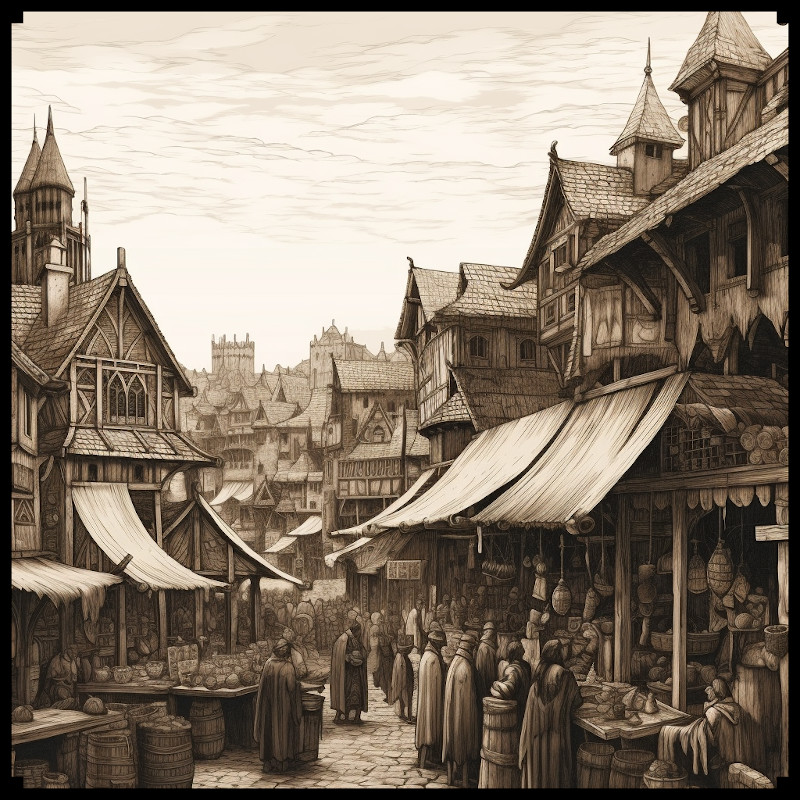
In the world of fantasy maps and ancient cartography, one element that has always captured the imagination of map-makers and map-readers alike is the medieval market. These bustling centers of commerce were the heart of many a medieval city, and were a key feature of many old maps. From the stands and stalls to the merchants and shoppers, the medieval market was a hub of activity and a vital part of daily life. And now, thanks to the Fantasy Medieval Market Assets Megapack, this rich tradition can be brought to life in all its glory :
But what was it that made these markets such a central part of medieval life, and why were they so important to map-makers and navigators? To answer that question, we need to take a journey back in time, to a world where trade and commerce were the lifeblood of society, and the market was the place where it all happened.
In the medieval world, the market was the center of economic activity. This was where merchants and traders came to sell their goods, and where customers came to buy them. The market was a place of exchange, where goods and services were traded for money, and where people could find everything from food and clothing to tools and household items. It was a place where people came to socialize and gossip, to meet old friends and make new ones. And it was a place where people came to learn about the wider world beyond their own city or town.
In many ways, the medieval market was the precursor to the modern shopping mall. It was a place where people could come to buy everything they needed, in one convenient location. But unlike modern malls, which are often sterile and impersonal, the medieval market was a lively and colorful place, full of noise and energy. The stalls and stands were brightly painted, and the merchants were often loud and boisterous, calling out their wares and haggling with customers over prices.
For map-makers, the medieval market was an important feature to include on their maps. Not only was it a vital part of daily life, but it was also a key landmark and point of reference. When traveling through a city or town, the market was often the first place a traveler would visit, and it was a natural starting point for exploring the rest of the area. By including the market on their maps, map-makers could provide an easy-to-understand reference point for travelers, and could help them navigate the area more easily.
But the medieval market was more than just a practical feature on a map. It was also a symbol of the power and wealth of the city or town that it represented. A bustling market was a sign of a thriving economy, and a place where merchants and traders from far and wide came to do business. By depicting the market on their maps, map-makers could show off the importance and influence of the city or town that it represented.
And now, with the Fantasy Medieval Market Assets Megapack, map-makers and game designers can bring the medieval market to life in all its glory. This pack contains a wide range of assets, from stalls and stands to kiosks and carts, all designed to capture the look and feel of a medieval market. With this pack, map-makers and game designers can create rich, detailed fantasy maps that transport players to a world of magic and adventure.

